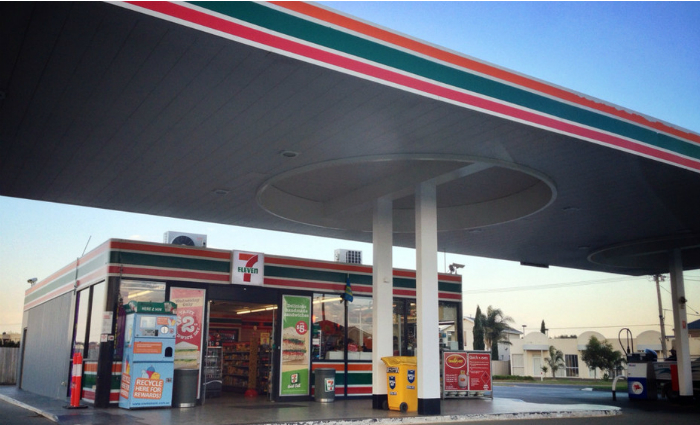
The PIAA says the so called 7-Eleven Bill currently before parliament will have serious adverse consequences for the print franchise groups, which make up around a quarter of the workforce of the entire local print industry.
The Fair Work (Vulnerable Workers) Act is being presented as a response to some 7-Eleven convenience store franchisees underpaying staff and charging them big money to sponsor them for Australian visas.
However PIAA CEO Andrew Macaulay says it will result serious consequences for the print franchise groups, which include in excess of 500 stores from the likes of Snap, Kwik Kopy, Worldwide, Minuteman., MBE, Signarama and Signwave.
Macaulay says under the Bill franchisors will be liable for the intended or negligent wrongdoing of any of their franchisees. He says, “The Bill as it currently stands says that franchisors will face punishment for the actions intended or otherwise of their franchisees.”
The Bill will make a franchisor equally liable with a franchisee (both in terms of a fine and payment of underpayments to workers) for a franchisee’s breach of Fair Work laws. Macaulay says, “This is alarming. That a franchisor can be fined, and fined a substantial amount, because of the actions of a franchisee, is clearly against the principles of law and justice that we adhere to in this country, and will impact on the relationship between franchisor and franchisee.
Under the Bill monetary punishments for wrongdoing will rise ill 10-fold for ‘deliberate’ and ‘systematic’ breaches of the Fair Work Act – to $108,000 for an individual and $540,000 for a company, and by 2-fold for unintended (and arguably minor) record-keeping and payslip errors – to $10,800 for an individual and $54,000 for a company.
The PIAA also says it gives the Fair Work Commission unwarranted powers, equivalent to ASIC and the ACCC, to be able to require information; compel the production of documents; and interrogate those involved, including employees and contractors. And it will mean that both franchisors and franchisees will face increased red tape; paperwork trails; auditing and internal costs, in order to try to reduce risks.
Macaulay says, “This is a prime example of an ill-considered piece of legislation being rushed through to appease public opinion, but which will have serious negative consequences on the franchise industry. It will pass through parliament as Liberals have been told to get in step with it, and the Labour and Green parties are strong supporters.”
The PIAA says the Bill makes responsible a franchisor who, for a range of sound commercial reasons, might not have a line of sight over a franchisee’s operations. It uses terms which are uncertain in their meaning and scope, for example ‘new or ought reasonably have known’ of contraventions and failed to ‘take reasonable steps’ to prevent them; has a ‘significant degree of influence or control’ over ‘the affairs’ of a franchisee or subsidiary ‘affairs’; the conducting of ‘deliberate’ and ‘systematic’ breaches of the Fair Work Act.
It also means that a franchisor can be compelled to rectify underpayment/s of wages made by a franchisee; and then have to sue the franchisee for recovery.
It exposes both franchisors and franchisees to significantly higher maximum penalties, for not only ‘deliberate’ and ‘systematic’ breaches of Fair Work laws, but also for minor and unintended breaches of record-keeping and payment lawsThe PIAA says that if the Bill is passed in its current form, obvious monetary and reputational risks flow from the issues outlined above.
The PIAA says that beyond these, practical consequences include: a franchisor is likely to take steps to reduce its risks by requiring more transparency and accountability from each franchisee; a franchisor’s legal advisors are likely to recommend maximum caution and prudence. Once received from franchisees, all of this will mean more information which a franchisor has to process and assess.
In addition a franchisee having to comply with these requirements from its franchisor will be faced with more red tape and upward reporting, (often) record-keeping obligations in excess of the basic requirements of the Fair Work Act; audits, including (self-imposed but) externally provided audits; and obviously more ‘compliance’ costs.
A franchisee will be subject to more intrusion from a franchisor, and arguably from third parties, such as customers.
The PIAA says these consequences are not unreasonable for the few rare, distressing and well-publicised examples, such as 7-Eleven, Baiada Poultry and Yogurberry, but for the law-abiding majority: they go too far.
PIAA urges its members to lobby their MPs to question the Bill.
Comment below to have your say on this story.
If you have a news story or tip-off, get in touch at editorial@sprinter.com.au.
Sign up to the Sprinter newsletter

Actually I do agree with the Bill to some extent.
It will encourage the Franchisor to take more responsibility over their Franchisee’s.
Maybe get their policies and procedures inline and ensure they are adhered to rather than just collecting the money they command from the Franchisees.
No doubt the Bill is a double edged sword but should be looked at from both sides before totally blasting it.